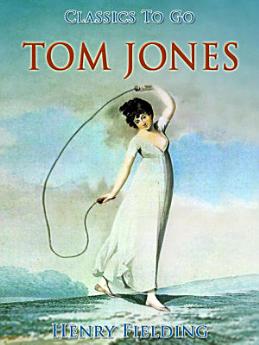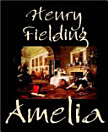Tom Jones
Jan 2016 · Otbebookpublishing
Ebook
1060
Pages
family_home
Eligible
info
reportRatings and reviews aren’t verified Learn More
About this ebook
Henry Fielding (22 April 1707 – 8 October 1754) was an English novelist and dramatist known for his rich earthy humour and satirical prowess, and as the author of the novel Tom Jones. The History of Tom Jones, a Foundling, often known simply as "Tom Jones", is a comic novel by the English playwright and novelist Henry Fielding. The novel is both a Bildungsroman and a picaresque novel. (Excerpt from Wikipedia)
About the author
Henry Fielding (1707-1754) was an English novelist, playwright, and magistrate whose life and work left an indelible mark on the literary and legal landscapes of 18th-century Britain. Born into a family of declining gentry, Fielding's early years were marked by financial instability, which fueled his sharp wit and satirical edge. His initial foray into the literary world was through the stage, where his plays often courted controversy for their biting social commentary and political satire, leading to the Licensing Act of 1737, which effectively ended his career as a dramatist.Undeterred, Fielding turned to prose, where his innovative narrative techniques and richly drawn characters earned him a place among the pioneers of the modern novel. His works often explored themes of justice, morality, and human folly, reflecting his deep engagement with the social issues of his time. Fielding's career as a magistrate further informed his writing, providing him with firsthand insight into the complexities of the legal system and the human condition.A contemporary of Samuel Richardson, Fielding's literary rivalry with him spurred a creative dynamism that enriched the period's literary output. Fielding's influence extended beyond his lifetime, shaping the development of the English novel and inspiring future generations of writers, including Charles Dickens and William Makepeace Thackeray.Fielding's legacy is not only literary but also legal; his efforts in reforming the justice system, particularly through the establishment of the Bow Street Runners, Britain's first professional police force, underscored his commitment to social improvement. His life and work continue to resonate, offering a compelling portrait of a man who deftly navigated the intersections of art, law, and society.
Rate this ebook
Tell us what you think.
Reading information
Smartphones and tablets
Install the Google Play Books app for Android and iPad/iPhone. It syncs automatically with your account and allows you to read online or offline wherever you are.
Laptops and computers
You can listen to audiobooks purchased on Google Play using your computer's web browser.
eReaders and other devices
To read on e-ink devices like Kobo eReaders, you'll need to download a file and transfer it to your device. Follow the detailed Help Center instructions to transfer the files to supported eReaders.








